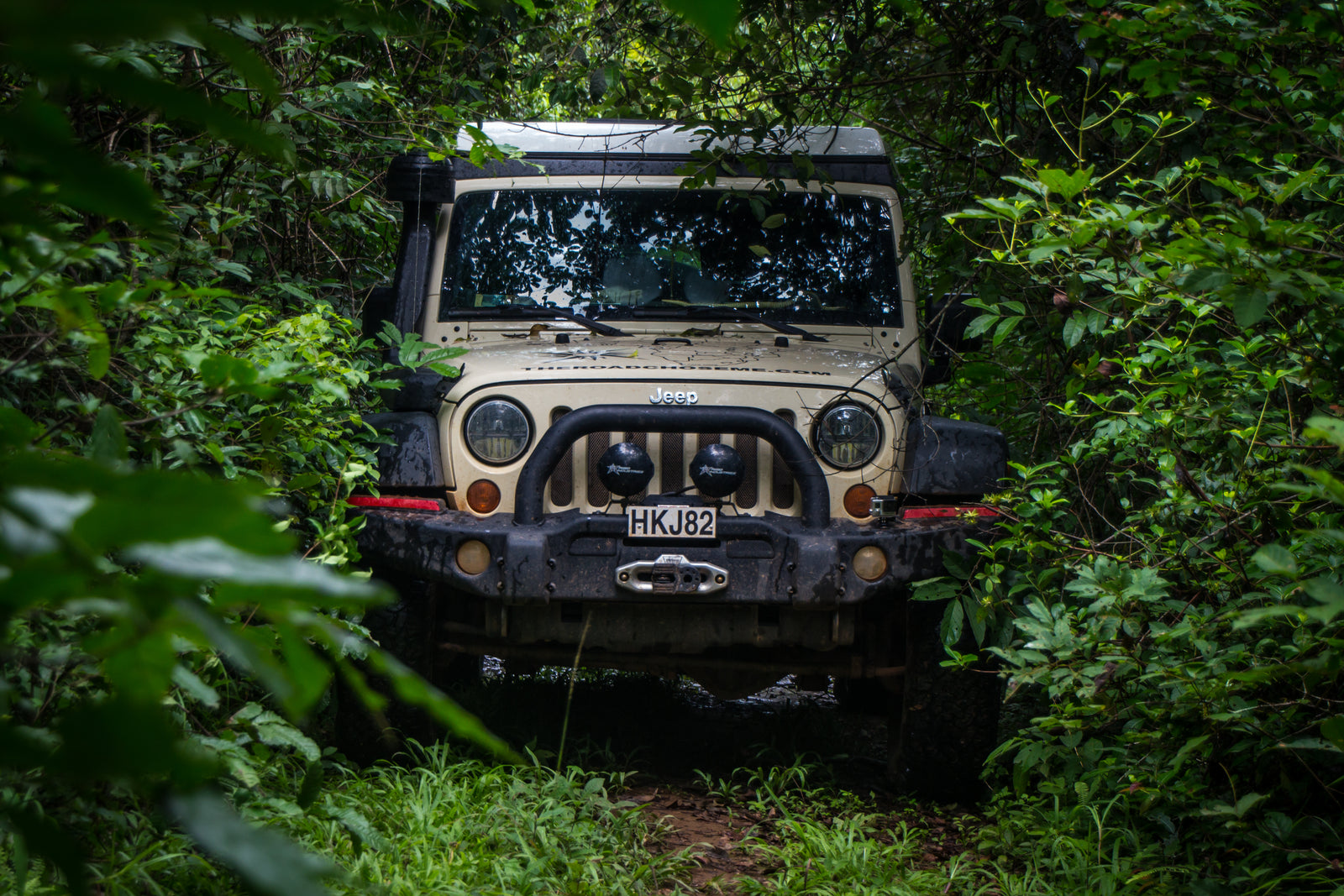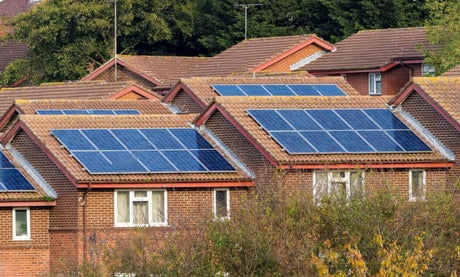You’ve probably noticed that solar power is growing in popularity here in the UK, and a large share of the credit for that growth is the rise in products like solar panel starter kits. These bundles make home solar systems easy to install, bringing solar power to your fingertips.
With a solar panel starter kit, you can begin your journey into the world of solar power. An increasing number of homeowners are anxious to cut their dependence on traditional forms of energy generation, both to save money on their monthly electric bills and shrink their carbon footprint. By installing solar panels on your home, you’re doing your part for the environment—and your pocketbook.
Of course, talking about solar starter kits is one thing. Let’s take a few minutes to look more closely at what your solar panel starter kit includes, what other pieces of equipment you’ll need to get, and how easy solar panel installation is.
Solar for Beginners: Your Solar Panel Starter Kit
In many ways, it helps to think of a solar panel starter kit as solar for beginners. While some homeowners are ready to commit to solar power completely, others may want to explore how solar electricity might fit their overall home power scheme. They also might not be ready to take on a total solar installation cost, which can run thousands of dollars.
With a solar panel starter kit, you’ll receive all the pieces you need to start generating solar electricity in your home in a single, convenient bundle. Not only will you save the time of having to track down each individual part, but you’ll also save money over ordering each piece individually as well.
Who Are Solar Panel Starter Kits For?
Just because solar panel starter kits are for beginners doesn’t mean that you won’t see a tangible benefit from your new solar installation. If you’re interested in cutting your energy costs by relying less on your power company, then a solar panel kit is suitable for you. Or, if you’re anxious to start cutting your contributions to carbon emissions, solar is a great way to reduce your environmental impact.
What’s the Best Solar Panel Starter Kit?
Several solar panel starter kits are on the market, so how do you choose which one is the best for you? There are many factors to consider, of course—from cost and customer reviews to the kit itself.
Be sure you know how committed you are to solar energy. The best investment you can make in solar for beginners is choosing a quality product that can expand and accommodate a more extensive solar system should you choose to upgrade one day. Durable materials and the ability to add extra panels to your system will give you the flexibility you need to adjust your solar system to your desired power levels.
What You Get with a Renogy Starter Kit
Renogy has several options when it comes to solar for beginners. From small kits intended for camping to larger permanent installations, they’ve got a solar panel starter kit that will let you start charging your solar battery banks.
Solar Panels
The most obvious component of any solar panel starter kit is the panels themselves. Each panel is made up of several photovoltaic (PV) cells, all of which produce energy from daylight. Renogy’s solar starter kits generally use 100w solar panels, although some kits have smaller panels, like the 50-watt solar panel. For larger systems, you simply add extra 100 watt panels to your system.
Charge Controller
When your solar panels generate electricity, it needs somewhere to go. There are two main reasons you can’t channel it directly to your electronics. First, while most electronics work on alternating current (AC), solar power produces direct current (DC), meaning it won’t power your appliances and lighting correctly. Second, you would have no way to control the flow of electricity—as long as the sun is out, you’ll be feeding power into your electronics.
That’s why solar power systems charge batteries. However, even here, we need a way to control the power flow from your solar panels. Otherwise, your batteries would continue to receive power even after they reached a full charge, which can cause dangerous results, including overheating and explosions.
Instead, your solar panels hook into something called a charge controller, which acts as a switch to turn the power supply on and off. If it senses that the battery is low, the controller turns on and charges the battery; once it senses the battery is charged, it switches the flow off.
There are two types of charge controllers available. The first is a pulse width modulation, or PWM, controller. These controllers reduce the voltage of the current from your solar panels to match your battery’s voltage level. While this provides a steady supply of electricity to your battery, PWM charge controllers lose some efficiency in the process, meaning you’re only getting about 75-80% of the power to the battery.
More efficient is the maximum power point tracker, or MPPT charge controller. These “smart” controllers monitor the efficiency of your solar panels and adjust the power flow to the battery by accounting for slight changes—giving them up to 97% efficiency in charging your batteries.
Adaptor Kit and Tray Cables
Your charge controller sits at the center of your solar panel starter kit. Everything connects through the controller, which then controls which way power flows, and at what level. Adaptor kits include two 20’ adaptor cables, which connect your panels to your controller. You then connect your battery to your controller with tray cables, both of which are 10’ long.
Branch Connectors
Your kit will come with branch connectors if your solar panel starter kit contains more than one panel. These allow you to wire your panels together while protecting the connection against water damage.
Mounting Hardware
The final components are the mounting Z brackets, which allow you to mount your panels quickly and easily. Each panel has two brackets, which attach to the long sides of your panel. You can then attach the brackets to your roof or wherever else you’re planning on mounting your solar system, leaving space underneath for cable runs.
Other Kinds of Solar Panel Kits
While several kits are aimed at solar for beginners, several other packages are available, all of which lend themselves to more specific applications. Here are some examples of different packages you can purchase:
RV
If you’re looking to install solar power on your caravan, you can find a number of different kits available, depending on your power needs. These kits have longer cables to accommodate the longer runs on your vehicle. They also include cable housings that protect the area where your cables enter your caravan. Finally, in addition to Z brackets, you can also mount your panels with corner brackets, which use adhesive rather than screws to attach to your vehicle.
Home
These kits are ideal for cabins or other homes where you may not have access to the power grid. From small buildings like sheds to full-fledged lodges, home solar kits produce enough power to run your entire home.
Premium
Suppose you’re willing to spend more money. In that case, you can purchase premium kits, including the same components as the solar power starter kit, except with much greater attention to long-lasting quality. These kits include higher-efficiency panels, an MPPT controller, and extra fusing material to ensure that your connections remain watertight.
Marine
Marine solar power has two requirements—lightweight and space-saving. Marine solar kits include lightweight, flexible solar panels, which take up virtually no space. And the Renogy Voyager PWM charge controller combines performance with superior waterproofing.
The Final Steps to Getting Started
While solar panel starter kits have everything you need to generate electricity, you’ll need a few more components to complete your system.
Battery
While they may look similar, car batteries and solar batteries are very different devices. Car starter batteries produce short bursts of electricity. On the contrary, the deep cycle batteries in a solar system deliver a lower charge over an extended period of time. The current choice for batteries is lithium-ion, which provides a safer, more efficient charge than previous batteries.
Inverter
Because both your solar panels and batteries work on DC, you need to transform that energy to AC in order to power your electronics. An inverter seamlessly changes DC power to AC, allowing you to use your appliances with a minimum of fuss safely.
Only the Beginning
While a solar panel starter kit is an excellent entry point into solar for beginners, it doesn’t have to be the endpoint. Once you install your first solar panels, you’ll see how much money you’ll end up saving by generating your own electricity.
If you want to continue asserting your energy independence, you can continue adding panels to your system and upgrading components.
Your starter kit is only the beginning of your solar journey. Only you know where the path will lead!










